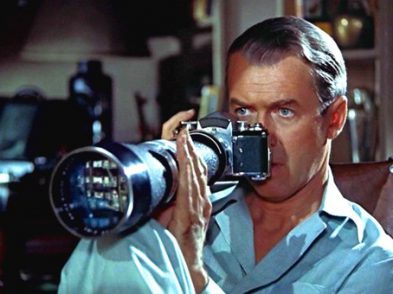Recent events
in North Africa, such as the uprisings in Egypt, Tunisia and the NATO action in
Libya have raised questions about the ability of Europe to speak with one
voice. The common foreign and security policy (CFSP) is the European Union’s
attempt to do just this. The most recent Lisbon Treaty made two significant
changes, which were meant to strengthen the CFSP: the creation of a High
Representative for Foreign Affairs and Security Policy (HR) and the European
External Action Service (EEAS).
In 1978, US secretary of state Henry Kissinger posed a famous question,
‘If I want to call Europe, what phone number do I call?’ Baroness Catherine
Ashton, the HR, is supposed to be the answer. In addition, Ashton is the head
of the EEAS and the vice president of the European Commission, alongside
President Barroso.
The crises in
North Africa have put the CFSP to the test. Take Libya for example. Much of the
progress is being made outside the European Union’s (EU) framework. The United
Nations Security Council voted 15-0 to adopt Security Council Resolution 1970,
proposed by the United States and three EU nations, the United Kingdom, France,
and Germany. The resolution called
for a referral to the International Criminal Court, an arms embargo, travel
ban, asset freeze of members of Gadhafi’s regime, and commitment to
humanitarian assistance.
To follow up,
the Security Council voted in favor of Resolution 1973, which called for an
immediate cease-fire between Libyan forces and the rebels, along with the
establishment of a no-fly-zone, further asset freezes and travel ban
provisions. The measure passed with 10 nations in favor (including permanent
members France and the UK), zero against, and five abstentions (Brazil, China,
Germany, India and the Russian Federation). This resolution not only
demonstrates the lack of EU-level involvement, but also, with Germany’s
reluctance and subsequent abstention from the resolution, the inability of
individual member states to agree.
In light of the
uprisings, Ashton’s inability to bring the 27-member-state bloc together has
earned her the nickname, ‘the invisible woman.’ Her slow approach and lack of a
clear European voice for democracy in the early stages of the uprisings has led
many to call her ‘powerless’ during the crisis in Libya, as British prime
minister David Cameron and French president Nicolas Sarkozy were the true
leaders in the Security Council. To make matters worse for Ashton, the
president of the European Council, Herman Van Rompuy, responded to news that
Osama bin Laden had been killed before she did, beating her by a few hours.
President
Giorgio Napolitano also got in on the action in his visit to Florence for the
Festival d’Europa in early May. During the conference on the state of the
union, Napolitano explained, ‘It might be worth underlining the state of the EU
as a foreign policy actor. The events we are experiencing in the Mediterranean,
North Africa and the Middle East prove the ineffectiveness of the foreign
policy project and security [of the EU].’
Recently, a
group of journalists covering the Middle East and North Africa were in town for
the New York University La Pietra Policy Dialogues. I had the opportunity to
ask them what they thought of the EU’s foreign policy in North Africa.
Bridget
Kendall, a diplomatic correspondent for the BBC, explained that the EU was
united after the fall of the Berlin Wall and spoke with one voice. She
attributed this to the small size of the EU at the time. The goal, according to
Kendall, was to embrace Eastern Europe and ‘provide them with the right carrots
to eventually join the EU.’ Today, with 27 member states, reaching consensus is
a substantial hurdle because there are more ‘cooks in the kitchen.’ Kendall
also pointed out that countries like Egypt, Libya and Tunisia have no prospect
for EU membership, a clear distinction from Eastern Europe. The EU had the
right carrots for the former Soviet Union countries, but is unsure how to
handle the Middle East and North Africa, without a prospect for membership.
Francesca Paci,
special Middle East correspondent for La
Stampa, echoed many
of Kendall’s comments, but added that EU member states do not have the same
interests in the Mediterranean. Nations like Italy, Spain and Greece have a
similar outlook because of their proximity, but Northern European countries
have different priorities. She also cited the recent immigration problems
between France and Italy as evidence for the lack of a common European foreign
policy.
To make matters
worse, the influx or of asylum applications to various EU member states has
called for a re-evaluation of visa policy in the EU. Currently, 41 countries do
not require a visa to travel in the EU. On May 24, the European Commission
announced that visa-free countries could be temporarily suspended from the list
if there is a sudden increase in asylum applicants or clandestine immigrants
from that country. The so-called ‘safeguard clause’ would ‘make visa policy
more efficient and allow us to react to unpredictable events,’ EU home affairs
commissioner Cecilia Malmstrom said.
So, is there
really a single phone number? Yes. But it has 27 extensions. When you call this
phone number, you will hear the following recording: ‘For French foreign
policy, press 1. For German foreign policy, press 2. For Italian foreign policy
press 3 . . .’
Besides the
lack of a single voice, the crises in the Maghreb have opened up a Pandora’s
box of policies that impact the EU as a whole and its member states.





